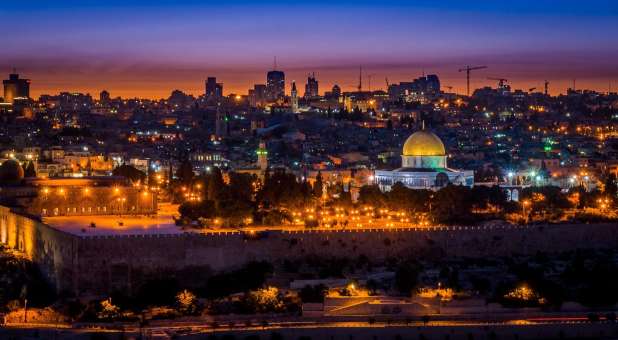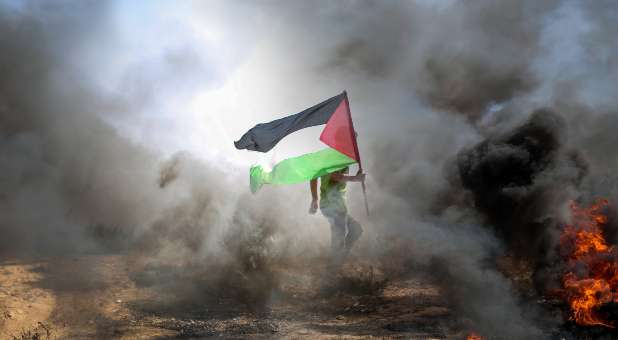With Rosh HaShanah and the beginning of the High Holidays only a few days away, I thought I would review some of my material on this from the perspective of a Christ follower.
It should be of no shock that the early believers, both Jew and Gentile, celebrated the festivals of Israel even after coming to Messiah. This included the celebration of Rosh HaShanah and fasting on Yom Kippur.
Yom Kippur is to Judaism what Christmas is to Christianity; just as many Christians go to church on Christmas—even if they never enter a church throughout the rest of the year—so too, most Jews fast on Yom Kippur and attend synagogue services. It is a cultural and spiritual landmark. Not surprisingly then, we find a passing reference to this fast in the book of Acts:
“Now when much time had been spent, and sailing was now dangerous because the Fast was already over, Paul advised them, saying, “Men, I perceive that this voyage will be with disaster and much loss, not only of the cargo and ship, but also our lives“ (Acts 27:9–10, NKJV).
“The Fast” referenced here is Yom Kippur. Daniel Stökl Ben Ezra assumes that Luke would not have used the term “the Fast” as a calendaric reference unless he himself was keeping the fast and assumed that his readers were as well:
I cannot help but draw the conclusion that Luke himself and his implied readers observed Yom Kippur. Why else would Luke use a “Jewish calendaric reference for a secular problem?” He clearly presumes that his readers will understand what he is referring to.
Scholars speculate that the readers of Acts were Gentiles like Luke himself. In order for Luke’s readers to understand such a passing reference, they must have been observing Yom Kippur. Indirect evidence can be found in the book of Revelation.
The book of Revelation is packed with allusions to the rituals and themes of the high holidays. The apocalyptic imagery—the day of judgment, the books of judgment, the blast of trumpets, the Temple scenes, and so forth—are all borrowed directly from the traditional observance of Rosh HaShanah and Yom Kippur. John addressed the book of Revelation to seven communities in Asia Minor, constituted predominantly of Gentiles.
If those communities were not celebrating the high holidays along with the Jewish community, they would have been ill-prepared to decipher the book of Revelation, just as the church is today. Records of Gentile believers celebrating Yom Kippur appear in later church literature. The late second-century Epistle to Diognetus rails against Christians who observe Jewish laws such as “the Fast.” Origen mentions Christians fasting on Yom Kippur:
Whence also we must say something now to those who think that in virtue of the commandments of the Law they must practice the fast of the Jews (Homily on Leviticus 12:2 [Barkley]).
He mentions another case, again involving Caesarean Christians, in his Homilies on Jeremiah, proving that this is not an isolated instance; there must have been at least several groups of Gentile Christians in the third century still celebrating this major feast day of Judaism. In the late fourth century, John Chrysostom is still denouncing those who “join the Jews in keeping their festivals and observing their fasts.”
Further witness to this phenomenon can be found in the fifth-century medieval church practice of the Fast of the Seventh Month. This fast formed part of the Ember Days and was one of the most solemn days of the church’s liturgical year. Scholars see this fast as the result of the Christianization of Yom Kippur.
In other words, because many Christian Gentiles were celebrating Yom Kippur, as the church began to split from Judaism, Christianity slowly transformed it into a solely Christian fast in the month of September. This is similar to the transformation of Passover into Easter.
The fifth-century theologian and pope Leo the Great wrote: “We proclaim the holy Fast of the Seventh Month, dearly-beloved, for the exercise of common devotions, confidently inciting you with fatherly exhortations to make Christian by your observance that which was formerly Jewish” (Sermon 90:1).
In this we once again see that many Gentile believers celebrated Yom Kippur, so much so that it remained even after the parting of the ways began to take place between Judaism and Christianity. {eoa}
Toby Janicki is a teacher, writer, and project manager for First Fruits of Zion (ffoz.org). He contributes regularly to Messiah Journal and has written several books including God Fearers: Gentiles and the God of Israel.
See an error in this article?
To contact us or to submit an article






















